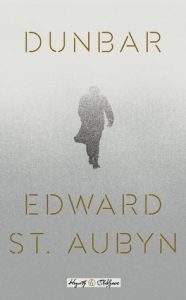 Media mogul Henry Dunbar has taught his two older daughters too well. In a lapse of judgment, he hands over his power to them, and they respond by placing him in an isolated sanatorium, as a business move, of course, and cutting loose his right hand man, Charlie Wilson. His youngest daughter by his second wife, his obviously favorite child, who rejected the family business, and he rejected in turn, searches for him out of love. In this modern day King Lear, the patriarch escapes with the assistance of an unreliable colleague, ending up in the rural wilderness during a mighty storm. Rage at the disloyalty of the turncoat daughters and the desire for forgiveness from his beloved youngest fuels his survival instincts. Henry not so much evolves as he makes a 180-degree turn to become a man understanding of his youngest daughter’s inclination toward family and away from money. Good and evil are clearly delineated by the two older, traitorous daughters and the youngest, all-loving daughter, easily explained by their different mothers. In his dangerous escapade, their father essentially switches sides, focusing immediately on reconciliation with the good daughter. Wilson aides in her search, never giving up on his employer and friend. In Shakespearean fashion, the inevitable happens, with good winning and losing.
Media mogul Henry Dunbar has taught his two older daughters too well. In a lapse of judgment, he hands over his power to them, and they respond by placing him in an isolated sanatorium, as a business move, of course, and cutting loose his right hand man, Charlie Wilson. His youngest daughter by his second wife, his obviously favorite child, who rejected the family business, and he rejected in turn, searches for him out of love. In this modern day King Lear, the patriarch escapes with the assistance of an unreliable colleague, ending up in the rural wilderness during a mighty storm. Rage at the disloyalty of the turncoat daughters and the desire for forgiveness from his beloved youngest fuels his survival instincts. Henry not so much evolves as he makes a 180-degree turn to become a man understanding of his youngest daughter’s inclination toward family and away from money. Good and evil are clearly delineated by the two older, traitorous daughters and the youngest, all-loving daughter, easily explained by their different mothers. In his dangerous escapade, their father essentially switches sides, focusing immediately on reconciliation with the good daughter. Wilson aides in her search, never giving up on his employer and friend. In Shakespearean fashion, the inevitable happens, with good winning and losing.
Dear Reader need not be a Shakespeare fan to appreciate this novel. In fact, it may be more dramatic without the comparison. The treacherous daughters come off as one dimensional, making them great villains, though not complex characters. The lovable daughter seems more human, with her adulterous thoughts of Wilson’s son, a previous lover. Dunbar himself presents as a grand tragic figure of patriarchy self-sabotage, with redemption within his grasp.
I’m thankful to receive an advanced copy of this book through Blogging for Books.